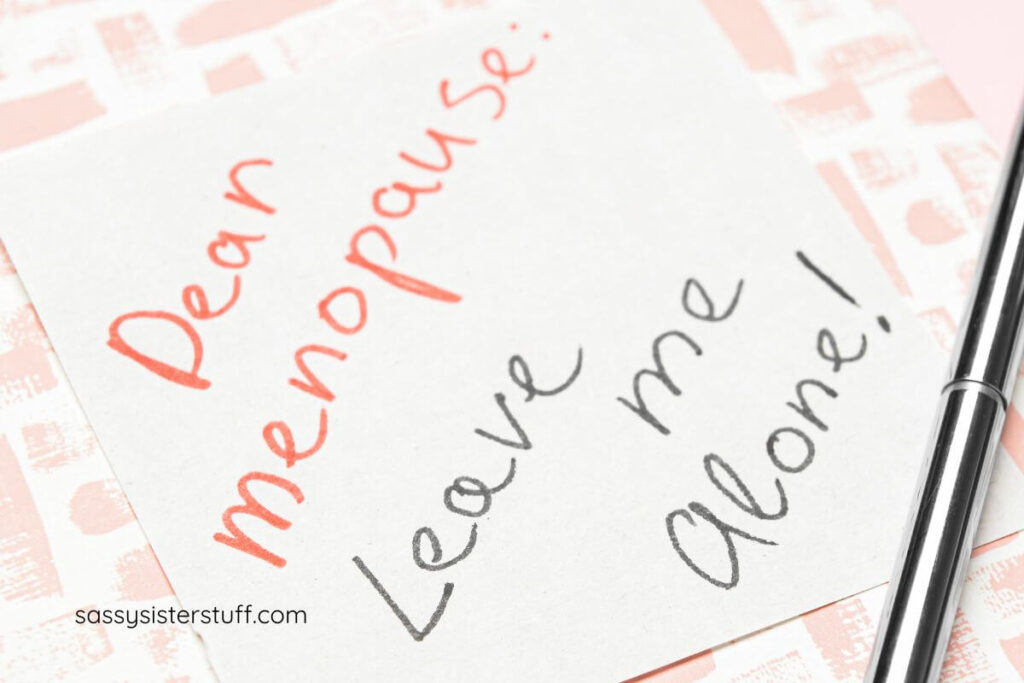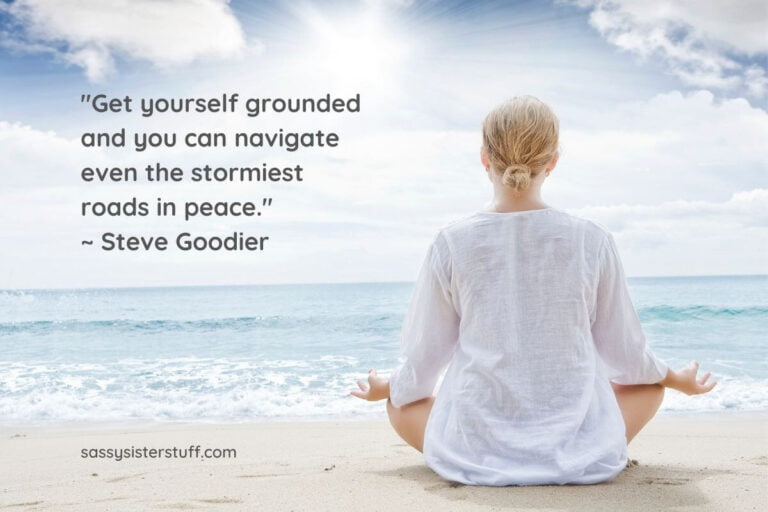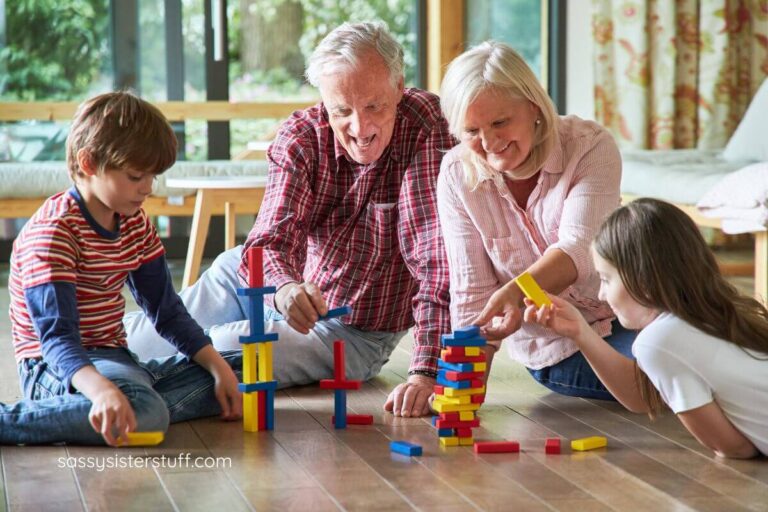Understanding and Surviving a Woman’s Midlife Crisis
The words midlife crisis often conjure up images of impulsive decisions and dramatic life changes, but the reality is usually more subtle and deeply personal, especially for women.
This period, typically occurring between the ages of 40 and 60, can stir up a mix of emotions ranging from reflection to restlessness (and maybe even some craziness thrown in there!)
Many women find themselves re-evaluating and questioning their life path, choices, relationships, and ambitions from a fresh perspective.

Understanding a woman’s midlife crisis can turn what seems like a challenging time into an opportunity for growth and rediscovery.
Let’s explore the midlife crisis so we can not only understand and survive it, but get through it with grace and patience.
Key Takeaways
- A midlife crisis for women is less about crisis and more about meaningful self-reflection and transition.
- Emotional and psychological changes during midlife are influenced by physical, social, and personal factors.
- Common experiences include questioning identity, exploring new interests, and reassessing relationships.
- Coping with a midlife crisis involves embracing change, seeking support, and nurturing self-compassion.
- This life phase can result in rewarding personal growth, increased confidence, and a renewed sense of purpose.

Understanding the Emotional Landscape of a Woman’s Midlife Crisis
Midlife brings a complex blend of emotions that can feel overwhelming but also enlightening.
For many women, this time is about wrestling with feelings related to past choices and future possibilities. It’s a natural pause, almost like hitting the refresh button on your life’s experience.
This emotional shift is often deeply tied to changing roles—whether as a mother, partner, or professional. Looking underneath these feelings helps clarify what’s really going on during these years.
Feelings of Restlessness and Uncertainty
Restlessness is a common theme, where women feel a subtle itch to break free from routines that once seemed comfortable.
It might manifest as a strong desire to try something new or unexpected, like taking a class, changing careers, or traveling solo.
For example, I decided that it was time to leave the classroom and move into school administration—so I completed another Master’s Degree in 22-months. Then spent 10 years in school administration before retiring.
This restlessness is not about dissatisfaction but rather curiosity about untapped potential. Uncertainty can feel unsettling, but it’s also a natural byproduct of stepping outside familiar roles and questioning what makes one happy.
Recognizing these feelings as a normal part of growth can help reduce anxiety.
Reflection and Reevaluation
Reflection during midlife often leads women to reexamine their goals and values. This can include reviewing relationships, both personal and professional, and deciding which connections remain important.
Reevaluation might prompt shifts in priorities—placing greater emphasis on self-care, creativity, or community involvement. It’s common to experience a mix of pride in past achievements alongside a yearning for fresh challenges.
This balancing act between honoring the past and embracing the future shapes much of the midlife experience. Enjoy it… don’t rush it… be patient with these years of your life.
Dealing with Emotional Challenges
While sometimes portrayed as a crisis, this emotional stage can be challenging but manageable with the right mindset.
Feelings such as sadness, anxiety, or frustration may appear but usually come and go like waves. Talking openly with trusted friends or professionals can provide clarity and comfort.
Practices like journaling or mindfulness can also offer helpful outlets for processing emotions.
Approaching these challenges as opportunities for understanding yourself better encourages resilience and self-growth.
Transforming Emotions into Opportunity
When handled with compassion and openness, the emotional shifts of midlife can spark exciting transformations. Discovering new interests or reigniting old passions often follows this period of emotional work.
Many women find that embracing vulnerability leads to greater authenticity and freedom. This era can become a catalyst for pursuing long-held dreams or forging a fresh path, grounded in deeper self-awareness.

The Physical and Biological Shifts Influencing a Woman’s Midlife Crisis
Physical changes in midlife play a significant role in shaping the experience for many women. These biological shifts are natural and often act as signals to slow down or adjust life’s pace.
Understanding bodily changes helps demystify the physical sensations that accompany emotional experiences. Rather than viewing them as obstacles, they can be embraced as part of the vibrant, evolving story of midlife.
Awareness of these transformations enriches self-care practices and overall well-being.
The Menopause Transition
Menopause is one of the most notable biological milestones influencing a woman’s midlife. It involves hormonal fluctuations that can cause symptoms like hot flashes, sleep disturbances, and mood swings.
Menopause is quite different from woman-to-woman. My experience with menopause lasted close to 15-years (I actually forgot exactly when I started and stopped because it just became a way of life for me!)
Hormonal changes intensify self-awareness and impact emotional stability (in my case, it impacted my emotional INstability!).
Some women find this phase a bit daunting (needless to say, I DID!), but many also report feeling a sense of liberation once menopause settles.
Understanding the physiology behind menopause changes empowers women to seek appropriate health support and adjust lifestyles thoughtfully.
Energy Levels and Physical Health
Midlife can bring shifts in energy, impacting daily routines and motivation. It’s common to notice fluctuations in stamina and changes in metabolism.
Paying attention to nutrition, exercise, and adequate rest can counterbalance these shifts and boost vitality.
Some women find that new types of physical activity, like yoga or walking, enrich both body and mind in this phase. Being proactive about health helps maintain a positive outlook and supports long-term wellness.
Changes in Appearance
Seeing visible signs of aging—such as wrinkles, gray hair, or weight changes—can affect self-perception during midlife. These changes can inspire a mixture of acceptance and discomfort. These feelings are perfectly normal.
Embracing appearance shifts with self-compassion allows women to celebrate the beauty of their life’s journey rather than feel pressured by society’s youth ideals.
Many choose to use this time as an opportunity to redefine beauty on their own terms, often finding newfound confidence. Think about the self-love movement, body positivity movement, and body neutrality movement as ways to redefine beauty.
Link Between Physical and Emotional Well-being
Physical and emotional health are tightly connected, especially during midlife and beyond. Feeling physically strong can improve mood and decrease stress, while emotional struggles might manifest physically.
Recognizing this link encourages care strategies that nurture both body and mind.
Mindful breathing, gentle movement, and therapeutic practices serve as bridges to balance emotional fluctuations alongside physical realities. This holistic approach promotes a well-rounded, fulfilling midlife experience.

Life Transitions and Social Dynamics
Midlife is often marked not only by internal changes but also by shifts in social roles and life circumstances. These external transformations add layers of complexity to the midlife journey. They contribute significantly to a woman’s midlife crisis.
Roles such as caregiver, empty nester, or workplace leader may evolve or transform altogether. Understanding how life transitions influence mental and emotional health helps women adjust more gracefully to these changes.
Exploring these shifting social dynamics reveals both challenges and unexpected opportunities. Let’s take a closer look.
Parenting Changes: From Active to Independent
As children grow and become more independent, mothers often experience a mix of pride and emptiness.
The ‘empty nest’ phase can prompt a reevaluation of identity beyond parenting. Some women feel relief and excitement about reclaiming time, while others grieve the changing family dynamic.
This transition encourages finding fresh purposes and exploring interests beyond child-rearing. Supporting yourself through this phase with patience and creativity can lead to unexpected joys.
Career Evolutions and Aspirations
Work roles often shift during midlife, whether through promotion, career change, or gradual scaling back.
Some women reassess long-held professional goals or seek new challenges that better align with evolving values.
Others might face workplace ageism or gender biases, which can be disheartening and frustrating but also spark advocacy and self-empowerment.
Navigating professional transitions thoughtfully enhances confidence and creates space for renewed ambition.
Shifting Relationships
Friendships and partnerships may transform during midlife as priorities and lifestyles change. Women might seek connections that better reflect current interests or values.
Unfortunately, adult children are often choosing to go no-contact with their parents today so women in midlife might also have to deal with this emptiness, or even grandparent alienation.
Romantic relationships can deepen, evolve, or occasionally dissolve, each path requiring sensitive adaptation.
Friendships often become chosen families, providing rich emotional support. Cultivating these relationships with intention adds meaningful connection and comfort during transitions.
Obviously, as you can see, shifting relationships can cause great stress and upheaval in a woman’s life so it’s important to learn how to cope with changes.
Caregiving Roles
Midlife frequently introduces caregiving responsibilities for aging parents or relatives. This role reversal can bring fulfillment alongside stress and fatigue.
Balancing caregiving with personal needs calls for clear boundaries and support networks. Recognizing caregiving as both a challenge and an act of love encourages compassion toward yourself.
Resources and community can play vital roles in sustaining well-being through this phase.
Social Expectations and Self-Expression
Societal expectations or pressures around appearance, success, and behavior may conflict with a desire for authenticity. Choosing to express yourself freely—through style, hobbies, or speaking out—can be an act of liberation.
This period is an invitation to redefine personal narratives and resist stereotypes. Embracing individuality enriches a woman’s sense of identity and empowers ongoing growth.

Psychological Growth and Identity Exploration
A woman’s midlife crisis is a powerful phase for psychological exploration and personal development. This chapter in life often beckons women to explore who they are beyond earlier defined roles.
It’s a time to integrate life lessons and to envision futures that resonate more deeply with inner values.
Psychological growth here is not about fixing something broken but expanding what already exists with insight and grace. This exploration can be as rewarding as it is challenging.
Identity Shifts and Self-Discovery
Women commonly experience shifts in identity, questioning who they have been versus who they want to become. This process can stir up both vulnerability and excitement.
Some women turn to new creative outlets or educational pursuits to explore hidden parts of themselves.
Others revisit dreams once set aside or discover new talents. This redefinition promotes a richer, multi-dimensional sense of self that embraces complexity and change.
Building Resilience Through Challenges
Midlife might bring setbacks or losses that require resilience, such as health issues or relationship changes.
Developing psychological strength often involves reframing difficulties as opportunities for deeper understanding and growth.
Practices like gratitude journaling, therapy, or peer support groups offer ways to nurture resilience. Celebrating small victories and staying patient through ups and downs fosters emotional endurance.
The Role of Mindfulness and Self-Compassion
Mindfulness encourages women to stay present with their feelings rather than resisting or judging them. This practice helps create space for self-acceptance and gentle observation of thoughts and sensations.
Self-compassion invites kindness towards yourself during struggles, fulfilling an important emotional need. These tools cultivate an inner environment where growth unfolds naturally, easing a woman’s midlife crisis.
Envisioning a Purposeful Future
Many women use midlife as a springboard to envision and pursue new goals aligned with personal meaning. This might involve volunteer work, mentorship, starting a new business, or deepening spiritual practices.
Having a sense of purpose energizes daily living and fosters optimism. It also offers a compass for decisions and priorities, supporting healthier life balance. This intentional approach often leads to greater satisfaction and fulfillment.
Integrating Past and Present Selves
Psychological growth includes weaving together experiences from earlier life stages with current insights. This integration allows women to honor their journey without being defined solely by it.
Looking back with compassion and forward with hope helps build a coherent narrative that empowers identity. Feeling whole and continuous across time brings peace amid change, nurturing a confident and resilient self.

Coping Strategies and Support Systems
Successfully navigating a midlife crisis involves practical coping strategies and the support of caring networks.
Women often benefit from intentional actions that promote balance and well-being. Recognizing when to ask for help and creating a toolbox of resources bolsters confidence in managing life’s ups and downs.
Building a support system that understands and validates the midlife experience is invaluable. These approaches combine to make this transition not just bearable but enriching.
Seeking Professional Help
Sometimes the feelings stirred up during midlife can feel heavy or confusing enough to warrant professional guidance.
Therapists, counselors, or life coaches can offer structured support and tools for navigating change. Professional help normalizes the experience and provides expert perspectives.
Often, this step leads to breakthroughs in self-understanding and healthier habits. It’s a proactive way to care for mental health during powerful transitions.
Engaging in Regular Self-Care Practices
Self-care is foundational when managing the emotional and physical demands of midlife. This can include simple daily rituals like meditation, nature walks, balanced nutrition, or adequate sleep.
Women often find that consistently tending to their own needs replenishes energy and reduces stress. Creating personal rituals fosters a sense of control and calm amid uncertainty.
Self-care is not indulgent but essential in thriving through the changes associated with midlife and beyond.
Relying on Social Connections
Relationships with friends, family, and peer groups provide vital emotional support. Sharing stories and listening creates empathy and reduces feelings of isolation.
Women may find special comfort in groups focused on midlife topics, where experiences feel understood and accepted.
These connections offer encouragement and practical advice, becoming lifelines through transition periods. Nurturing social bonds contributes significantly to resilience.
Exploring New Interests and Hobbies
Diving into new or rekindled interests serves as both a distraction and a meaningful outlet. Whether it’s painting, gardening, travel, or learning a language, engaging creatively sparks joy and confidence.
New activities also expand social circles and enhance cognitive function. These experiences help women see themselves in fresh ways and create positive momentum. Hobbies become a source of pleasure and growth amid life changes.
Setting Realistic Expectations and Goals
Adjusting expectations to fit current realities reduces frustration and disappointment. Don’t set out to change the world during your midlife crisis—keep your goals simpler.
Midlife is not the time for perfection but for progress and self-kindness. Setting attainable goals tailored to new interests or circumstances promotes a sense of achievement.
This approach encourages patience and celebrates effort over outcome. Realistic goal-setting supports steady, satisfying development through midlife fluctuations.

Final Thoughts
A midlife crisis for a woman is less of a singular event and more of a rich, evolving journey that blends emotional, physical, and social changes.
By embracing this phase with openness and compassion, women can discover new dimensions of themselves and life’s possibilities.
With the right support and mindset, midlife becomes an empowering chapter marked by growth, renewal, and deeper fulfillment.
I hope you’ve found the information in this article helpful and can learn to view a midlife crisis as an opportunity for growth rather than something to fear. You’ll be just fine! I survived it and have come out on the other side a better person:) You will, too!
Related Articles You’ll Love
35 Empowering Quotes About Midlife Growth and Change
Let these quotes inspire your next chapter with strength, grace, and confidence.
Wellness Routines That Are Actually Sustainable
Because true well-being isn’t about extremes — it’s about what feels good and lasts.
Generation Jones: Everything You Ever Wanted (or Needed) to Know
A comprehensive guide about people born between 1954 and 1965 — it was an interesting time to be born.
Women in Midlife and Beyond: What Matters Most in Life
Life after 50 is a beautiful opportunity to pause, reflect, and refocus on what matters most in life — let’s do this!
Love to ALL! ~ Susan







